It is important to understand why skin whitening cream in Pakistan so popular and which cream gives you true results. Skin whitening is a cosmetic practice that involves using products to lighten the skin tone or reduce the appearance of dark spots, blemishes, and hyperpigmentation. In Pakistan, like many other countries, skin whitening has gained significant popularity over the years. The desire for fairer skin is deeply rooted in cultural and historical norms, where fair skin is often associated with beauty and social status.
The historical influence of colonization and the prevalence of colorism within society have contributed to the societal preference for fairer skin tones. Moreover, the media’s portrayal of fair-skinned individuals as symbols of beauty and success has further fueled the demand for gluta products in Pakistan.
Take Away
Following are the take away of this content in a Summary
Beauty Standards: Fair skin is often considered the ideal beauty standard in Pakistan, leading many individuals to seek skin whitening products to achieve lighter skin tones.
Cultural Influence: Cultural norms and traditions, including the preference for fair brides and grooms, have perpetuated the belief that fair skin is more attractive.
Media and Advertising: The beauty industry and media frequently promote fair-skinned individuals as models and celebrities, influencing perceptions of beauty.
Social and Economic Advantages: In certain contexts, fair-skinned individuals may experience perceived social and economic advantages, leading others to aspire to similar benefits.
Hyperpigmentation and Skin Concerns: Skin whitening products are also sought after to address specific skin concerns, such as dark spots, melasma, and post-inflammatory hyperpigmentation.

Skin Whitening Cream in Pakistan

Understanding Skin Whitening Creams
Skin whitening creams are topical products designed to lighten the skin’s tone and improve its overall appearance. In Pakistan, these creams have gained immense popularity due to the cultural preference for fair skin. They often contain active ingredients that inhibit the production of melanin, the pigment responsible for skin color, resulting in a lighter complexion over time.
Key Ingredients in Skin Whitening Creams
Several key ingredients are commonly found in skin whitening creams available in Pakistan:
- Hydroquinone: A widely used skin-lightening agent that reduces melanin production. It is effective in treating hyperpigmentation and dark spots but should be used in controlled concentrations to avoid adverse effects.
- Kojic Acid: Derived from various fungi, kojic acid inhibits tyrosinase, an enzyme involved in melanin synthesis. It is effective in reducing dark spots and uneven skin tone.
- Glycolic Acid: An alpha hydroxy acid (AHA) that exfoliates the skin, helping to remove dead skin cells and improve skin texture. It can also lighten hyperpigmentation to some extent.
- Vitamin C: A potent antioxidant that helps brighten the skin and reduce the appearance of dark spots.
- Arbutin: A natural skin-lightening compound derived from bearberry plants. It inhibits tyrosinase, leading to a reduction in melanin production.
- Niacinamide: Also known as Vitamin B3, niacinamide helps even out skin tone and reduce the appearance of dark spots and hyperpigmentation.
Types of Skin Whitening Creams
Skin whitening creams in Pakistan come in various forms to cater to different skin types and concerns:
- Day Creams: Designed for daytime use, these creams often contain SPF to protect the skin from harmful UV rays while working on lightening dark spots.
- Night Creams: Night creams focus on skin repair and rejuvenation during the body’s resting phase. They often contain higher concentrations of active ingredients to target pigmentation.
- Spot Treatments: Spot treatments are used to target specific areas of hyperpigmentation or dark spots, providing intensive care to those areas.
Safety and Regulations
When using skin whitening creams in Pakistan, it is essential to prioritize safety and choose products that are approved by relevant authorities. The Pakistan Drug Regulatory Authority (DRAP) oversees the regulation of cosmetic products in the country to ensure they meet safety standards.
Avoid using products with banned or harmful ingredients, such as mercury, hydroquinone in high concentrations, or steroids, as they can cause serious health issues. Always read the ingredient list before purchasing any skin whitening cream and check for potential allergens.
Choosing the Right Product
Selecting the right skin whitening cream involves considering individual skin type, concerns, and any pre-existing skin conditions. For best results, consult a dermatologist who can recommend a suitable product tailored to your specific needs.
Choose brands with positive customer reviews, transparent ingredient lists, and a proven track record of safety and efficacy. Additionally, opt for cruelty-free and environmentally responsible brands whenever possible.
Benefits and Limitations
Skin whitening creams can offer various benefits when used correctly and safely:
- Reducing the appearance of dark spots and hyperpigmentation.
- Evening out skin tone for a more radiant complexion.
- Improving the texture and overall appearance of the skin.
However, it is essential to understand the limitations of skin whitening creams:
- Results may vary depending on individual skin type and concerns.
- Achieving significant lightening may take time and consistent use.
- Continuous use may be necessary to maintain results.
In the next section, we will explore proper application and usage guidelines for skin whitening creams, as well as the importance of a comprehensive skincare routine for optimal results.
The Importance of Using Safe and Effective Skin Whitening Creams
While the demand for skin whitening creams is evident, it is essential to prioritize safety and effectiveness when choosing such products. The unregulated use of certain skin whitening creams containing harmful ingredients, such as mercury or steroids, can lead to severe health consequences, including skin irritation, allergies, and even long-term damage.
Opting for safe and effective skin whitening creams ensures that the products are dermatologically tested and approved, reducing the risk of adverse effects. Look for products with natural and scientifically-backed ingredients that target pigmentation and promote healthy skin.
Choosing reputable brands with a history of positive customer reviews and transparency in their ingredients list is crucial. Additionally, it is recommended to consult a dermatologist before starting any skin whitening regimen to ensure that the chosen product aligns with individual skin type and concerns.
In the following sections, we will delve deeper into understanding skin whitening creams, their benefits and limitations, proper usage guidelines, and the importance of maintaining a holistic skincare routine for radiant and healthy skin.
Safety and Regulations

Importance of Using Regulated and Approved Skin Whitening Creams in Pakistan
When it comes to skin whitening creams, safety should be the top priority. In Pakistan, the Pakistan Drug Regulatory Authority (DRAP) is responsible for regulating cosmetic products, including skin whitening creams, to ensure they meet safety standards and do not pose any harm to consumers. Using regulated and approved skin whitening creams offers several advantages:
- Effective Ingredients: Regulated creams contain scientifically proven and safe ingredients, ensuring that they effectively address hyperpigmentation and dark spots.
- Compliance with Safety Standards: Approved products undergo rigorous testing to comply with safety standards and avoid the use of harmful substances.
- Avoiding Adverse Effects: Regulated creams are less likely to cause adverse reactions, such as skin irritation, allergies, or other skin conditions.
- Reliable Results: Using regulated products increases the likelihood of achieving the desired results without compromising on safety.
Potential Risks and Side Effects of Certain Ingredients
While some skin whitening cream ingredients are safe and effective, certain ingredients may carry potential risks and side effects, especially when used inappropriately or in high concentrations:
- Hydroquinone: In higher concentrations, hydroquinone can lead to skin irritation, redness, and sensitivity. Long-term use of high-dose hydroquinone has been associated with a condition called exogenous ochronosis, which causes skin darkening and thickening.
- Mercury: Mercury, often found in unregulated products, is extremely hazardous and can lead to severe health problems, including kidney damage, neurological issues, and skin rashes.
- Steroids: Prolonged use of skin whitening creams containing steroids can cause skin thinning, stretch marks, and increased hair growth.
- Parabens and Allergens: Some creams may contain parabens or allergens that can trigger skin allergies in sensitive individuals.
Guidance on Choosing a Safe and Reputable Skin Whitening Cream Brand
To ensure a safe and effective experience with skin whitening creams, consider the following guidelines when choosing a brand:
- Check for Approval and Certification: Look for products approved by the DRAP or other relevant regulatory authorities. Certified products are more likely to be safe and compliant with established standards.
- Read the Ingredient List: Carefully read the ingredient list to avoid products containing harmful substances such as mercury or high-dose hydroquinone.
- Customer Reviews and Ratings: Check customer reviews and ratings to gain insights into the product’s efficacy and safety. Positive feedback from other users indicates a reputable and trustworthy brand.
- Consult a Dermatologist: Before using any skin whitening cream, consult a qualified dermatologist who can assess your skin type, concerns, and recommend appropriate products.
- Avoid Unrealistic Claims: Be cautious of products that promise immediate and drastic results. Realistic expectations are essential when using skin whitening creams.
- Choose Ethical Brands: Opt for brands that prioritize ethical practices, are cruelty-free, and promote sustainable and responsible skincare.
Remember, achieving safe and desirable results with skin whitening creams requires responsible usage and informed decision-making. Prioritize your skin health, and if you experience any adverse reactions, discontinue use immediately and seek medical advice. With careful consideration and proper guidance, you can find a safe and reputable skin whitening cream that works effectively for your skin concerns.
Benefits and Limitations

Potential Benefits of Using Skin Whitening Creams
Skin whitening creams can offer several benefits when used appropriately and responsibly:
- Reducing Dark Spots and Hyperpigmentation: Skin whitening creams with active ingredients like kojic acid and glycolic acid can effectively target dark spots and hyperpigmentation caused by sun exposure or hormonal changes.
- Evens Out Skin Tone: Uneven skin tone can be a common concern, especially in areas like the face and neck. Skin whitening creams help even out the skin tone, providing a more balanced and radiant complexion.
- Minimizes Acne Scars: Some skin whitening creams contain ingredients that can help reduce the appearance of acne scars and blemishes, promoting smoother-looking skin.
- Boosts Confidence: Achieving a more even and radiant complexion can boost self-confidence and improve one’s perception of their appearance.
- Non-Invasive Alternative: Skin whitening creams offer a non-invasive and cost-effective alternative to certain cosmetic procedures like chemical peels or laser treatments for mild hyperpigmentation.
Limitations of Skin Whitening Creams
It’s essential to recognize the limitations of skin whitening creams to manage expectations effectively:
- Varying Results: The effectiveness of skin whitening creams can vary from person to person. Factors such as skin type, severity of hyperpigmentation, and individual response to the ingredients can influence results.
- Consistent Use Required: Achieving significant lightening or improvement in dark spots requires consistent and prolonged use of skin whitening creams. Patience and dedication are necessary for visible results.
- Risk of Adverse Reactions: While regulated and approved creams are generally safe, some individuals may experience mild skin irritation or allergic reactions. Conduct a patch test before full application to check for any adverse responses.
- Limited Impact on Deep Pigmentation: Skin whitening creams may have limited impact on deep-set pigmentation or genetic factors influencing skin color.
- Sun Protection is Vital: Continuous sun exposure can hinder the effectiveness of skin whitening creams. Using sunscreen daily is essential to protect the skin from UV damage and maintain the results.
- Not a Replacement for Skincare: Skin whitening creams should complement a comprehensive skincare routine, including proper cleansing, exfoliation, and moisturization.
- Holistic Approach Needed: Addressing the root causes of hyperpigmentation, such as hormonal imbalances or excessive sun exposure, requires a holistic approach that may involve lifestyle changes and medical advice.
Choosing the Right Product
Tips for Identifying the Most Suitable Skin Whitening Cream
Selecting the right skin whitening cream for your specific skin type and concerns is essential to achieve optimal results. Consider the following tips when choosing a product:
- Identify Your Skin Type: Determine your skin type (normal, dry, oily, combination) as different skin types may have different sensitivities to certain ingredients.
- Address Specific Concerns: Identify the primary concern you want to address, such as dark spots, hyperpigmentation, acne scars, or uneven skin tone.
- Read the Label: Check the ingredient list for active components that target your specific concern. Look for ingredients like kojic acid, glycolic acid, vitamin C, or arbutin, depending on your needs.
- Avoid Harmful Ingredients: Stay away from products containing harmful substances such as mercury, hydroquinone in high concentrations, or steroids.
- Patch Test: Before applying the cream to your face, conduct a patch test on a small area of your skin to check for any allergic reactions or irritation.
- Consider Product Reviews: Read customer reviews and testimonials to gain insights into the effectiveness and safety of the product.
- Brand Reputation: Choose reputable and well-established brands with a history of producing safe and effective skincare products.
- Sunscreen Inclusion: Some skin whitening creams include SPF for sun protection. If you plan to use the cream during the day, consider products with added sunscreen.
Consulting a Dermatologist
Before starting any skin whitening regimen, it is highly recommended to consult a qualified dermatologist. A dermatologist can assess your skin type, identify any underlying skin conditions, and recommend the most suitable and safe skin whitening cream for your specific needs.
Furthermore, a dermatologist can provide personalized advice on the appropriate application frequency, duration of use, and potential side effects to watch out for. Their guidance ensures that you achieve desired results without compromising your skin’s health and safety.
Popular and Trusted Skin Whitening Cream Brands in Pakistan
There are several popular and trusted skin whitening cream brands available in Pakistan. Here are some well-regarded options:
- Fair & Lovely: A well-known brand offering a range of skin whitening products targeting various concerns, including dark spots and uneven skin tone.
- Garnier Skin Naturals: Garnier offers skin whitening creams enriched with natural ingredients like lemon essence and vitamin C to brighten the complexion.
- Ponds: Ponds has a line of skin whitening creams that contain ingredients like niacinamide and glycerin for a more even and radiant complexion.
- Olay Natural White: Olay’s skin whitening cream contains mulberry extract and antioxidants for reducing dark spots and improving skin tone.
- L’Oreal Paris White Perfect: L’Oreal’s skin whitening range includes creams with active ingredients like melanin-vanish and Tourmaline gemstone to lighten skin tone.
Remember that the effectiveness of a skin whitening cream can vary from person to person. It’s essential to choose a product that suits your skin type and concerns while prioritizing safety and following proper usage guidelines. When in doubt, consult a dermatologist for personalized recommendations and advice.
Proper Application and Usage

Step-by-Step Instructions for Applying Skin Whitening Cream Effectively
To maximize the effectiveness of your skin whitening cream, follow these step-by-step instructions for proper application:
- Cleanse Your Face: Start by cleansing your face with a mild cleanser to remove dirt, oil, and impurities. Pat your skin dry with a clean towel.
- Perform Patch Test: Before applying the cream to your entire face, do a patch test on a small area of your skin. This helps you check for any allergic reactions or irritation.
- Apply the Cream: Take a small amount of the skin whitening cream and apply it evenly to your face. Gently massage the cream using upward circular motions to promote absorption.
- Avoid Sensitive Areas: Avoid applying the cream too close to the eyes, nostrils, and lips to prevent potential irritation in sensitive areas.
- Sunscreen Application (Day Cream): If you are using a skin whitening day cream that does not contain SPF, follow up with a broad-spectrum sunscreen with at least SPF 30 to protect your skin from harmful UV rays.
- Nighttime Application (Night Cream): If using a skin whitening night cream, apply it as the last step of your nighttime skincare routine, allowing it to work overnight while your skin repairs and regenerates.
- Consistency is Key: To see noticeable results, use the skin whitening cream consistently as directed by the product’s instructions or your dermatologist.
Importance of Following Recommended Dosage and Duration
Following the recommended dosage and duration of usage is crucial for achieving optimal results with skin whitening creams:
- Safety and Efficacy: The recommended dosage ensures that you use the product safely without overloading your skin with active ingredients.
- Avoid Adverse Reactions: Prolonged or excessive use can lead to adverse reactions, such as skin irritation, redness, or sensitivity.
- Time for Results: Skin whitening takes time, and consistent usage is necessary to see visible improvements in dark spots and hyperpigmentation.
- Gradual Lightening Process: Skin whitening creams work gradually, so avoid the temptation to apply more than recommended for faster results.
- Prevent Over-Whitening: Using the cream beyond the recommended duration may result in over-whitening or unnatural-looking skin tone.
Addressing Common Misconceptions and Setting Realistic Expectations
It’s essential to dispel common misconceptions about skin whitening creams and set realistic expectations:
- Instant Results: Skin whitening creams are not magic potions, and they do not provide instant results. Patience and consistency are key for gradual and long-lasting improvements.
- One-Shade Lightening: Skin whitening creams may not completely change your skin tone or make you significantly fairer. Their primary goal is to address specific concerns like dark spots and hyperpigmentation.
- Not for Changing Ethnicity: Skin whitening creams do not change one’s ethnicity or race. Embrace your natural skin tone and focus on achieving a healthy and radiant complexion.
- Sun Protection is Vital: To maintain the results of your skin whitening cream, sun protection is essential. Sunscreen with high SPF should be a part of your daily skincare routine.
- Personalized Results: Each individual’s response to skin whitening creams may vary based on factors like skin type, genetics, and lifestyle. Be patient and celebrate your unique progress.
Skin Care Routine and Maintenance
The Importance of a Comprehensive Skincare Routine
Maintaining healthy and radiant skin requires a comprehensive skincare routine that addresses various aspects of skin health. A well-rounded routine not only enhances the effects of skin whitening creams but also promotes overall skin health. Here’s why a comprehensive skincare routine is vital:
- Cleansing: Proper cleansing removes dirt, impurities, and excess oil from the skin, allowing the skin to breathe and absorb the active ingredients in skin whitening creams more effectively.
- Exfoliation: Regular exfoliation helps unclog pores, remove dead skin cells, and promote cell turnover. This enhances the penetration of skin whitening creams and improves their overall efficacy.
- Hydration: Keeping the skin hydrated is essential for maintaining a healthy moisture barrier. Hydrated skin is more receptive to the benefits of skincare products, including skin whitening creams.
- Sun Protection: Sunscreen is a non-negotiable step in any skincare routine. It protects the skin from harmful UV rays, prevents further darkening of pigmentation, and preserves the results of skin whitening.
- Moisturization: Proper moisturization helps retain skin moisture and supports the skin’s natural barrier function. It complements the effects of skin whitening creams and promotes a smooth and supple complexion.
- Targeted Treatments: Depending on specific skin concerns, targeted treatments like serums or spot treatments can address additional issues, such as acne, wrinkles, or uneven skin texture.
Complementary Products for Use Alongside Skin Whitening Creams
To enhance the effects of skin whitening creams and maintain overall skin health, consider incorporating these complementary products into your skincare routine:
- Sunscreen: A broad-spectrum sunscreen with at least SPF 30 should be used daily, regardless of weather conditions, to protect the skin from harmful UV rays.
- Moisturizer: Choose a lightweight, non-comedogenic moisturizer that suits your skin type. This helps lock in moisture and prevent dryness, making the skin more receptive to skin whitening creams.
- Gentle Cleanser: Use a gentle cleanser suitable for your skin type to cleanse the skin twice a day—once in the morning and once at night—to maintain a clean and healthy complexion.
- Exfoliant: Include a chemical exfoliant with alpha hydroxy acids (AHAs) or beta hydroxy acids (BHAs) to exfoliate the skin 2-3 times a week. Avoid harsh physical scrubs that can cause skin irritation.
- Vitamin C Serum: A Vitamin C serum can complement skin whitening creams by brightening the skin, improving overall skin tone, and providing additional antioxidant protection.
- Spot Treatment: If you have specific areas of concern, such as stubborn dark spots, consider using a spot treatment to target those areas directly.
Encouraging a Healthy Lifestyle for Overall Skin Health
A comprehensive skincare routine is most effective when combined with a healthy lifestyle. Encourage these practices for overall skin health:
- Balanced Diet: A diet rich in fruits, vegetables, whole grains, and lean proteins provides essential nutrients that support skin health.
- Hydration: Drink an adequate amount of water daily to keep your skin hydrated from the inside out.
- Physical Activity: Regular exercise improves blood circulation, which nourishes the skin and contributes to a healthy complexion.
- Adequate Sleep: Get enough sleep to allow your skin time to repair and regenerate.
- Stress Management: Practice stress-relief techniques, as stress can negatively impact skin health.
- Avoid Smoking and Excessive Alcohol: Smoking and excessive alcohol consumption can damage the skin and lead to premature aging.
Remember, healthy and radiant skin is a reflection of overall well-being. A comprehensive skincare routine, along with a healthy lifestyle, will complement the effects of skin whitening creams and help you achieve the best possible results while maintaining the health of your skin.
Lifestyle and Cultural Perspectives

Societal and Cultural Implications of Skin Whitening in Pakistan
In Pakistan, skin whitening holds significant societal and cultural implications, deeply rooted in historical and contemporary contexts. The preference for fair skin is pervasive and often perpetuated by various factors:
- Colonial Influence: Historical colonialism left a lasting impact on cultural perceptions of beauty, favoring fair-skinned individuals as a symbol of superiority and privilege.
- Media Representation: The media, including advertisements and entertainment industries, often promote fair-skinned individuals as the epitome of beauty, leading to widespread idealization.
- Social Advantages: Fair skin is associated with social advantages, including improved marriage prospects and job opportunities, leading many individuals to seek ways to lighten their complexion.
- Cultural Norms: Traditional cultural norms, including the belief that fair brides and grooms are more desirable, contribute to the preference for lighter skin tones.
- Global Beauty Standards: The influence of global beauty standards and Western media can also impact beauty ideals in Pakistan, further reinforcing the desire for fair skin.
Importance of Promoting Self-Acceptance and Embracing Natural Skin Tones
Amidst the cultural emphasis on skin whitening, it is crucial to promote self-acceptance and celebrate natural skin tones. Embracing diversity in skin color fosters a positive and inclusive environment:
- Self-Esteem and Confidence: Encouraging self-acceptance empowers individuals to embrace their natural beauty and build self-esteem and confidence.
- Cultural Pride: Celebrating diverse skin tones contributes to preserving and cherishing Pakistan’s rich cultural heritage.
- Challenging Beauty Standards: Promoting diverse beauty standards challenges the narrow definitions of beauty and encourages acceptance of unique features.
- Body Positivity: Embracing natural skin tones is an essential aspect of body positivity, encouraging individuals to love themselves as they are.
- Cultural Identity: Valuing natural skin tones reinforces cultural identity and promotes a sense of belonging within communities.
Encouraging a Positive and Inclusive Outlook on Beauty Standards
Creating a positive and inclusive outlook on beauty standards requires collective efforts from society, media, and the beauty industry:
- Representation in Media: Encourage media to portray diverse beauty standards by featuring individuals with different skin tones and body types.
- Education and Awareness: Educate the public about the harmful effects of skin whitening products containing unsafe ingredients.
- Promote Role Models: Celebrate public figures and influencers who promote self-acceptance and embrace their natural skin tones.
- Brands and Advertising: Encourage beauty brands to promote inclusive and diverse campaigns that celebrate all skin tones.
- Supporting Natural Beauty: Promote natural beauty products that focus on enhancing and nourishing the skin rather than altering its color.
- Empowerment Programs: Support empowerment programs that promote self-esteem and body positivity among young individuals.
Conclusion
In this article, we explored the world of skin whitening creams in Pakistan and their impact on individuals’ beauty preferences and cultural perspectives. Here are the key points discussed:
- Skin Whitening Creams in Pakistan: Skin whitening creams have gained popularity in Pakistan due to the cultural preference for fair skin. These creams contain active ingredients that inhibit melanin production, resulting in a lighter complexion.
- Choosing Safe and Effective Products: It is essential to prioritize safety and choose regulated and approved skin whitening creams. Avoid products with harmful ingredients and opt for reputable brands with positive customer reviews.
- Proper Application and Usage: Properly apply the cream to clean, dry skin and follow the recommended dosage and duration for best results. Consult a dermatologist for personalized advice and guidance.
- Complementary Skincare Products: Enhance the effects of skin whitening creams with complementary products like sunscreen, moisturizers, and exfoliants in a comprehensive skincare routine.
- Cultural Perspectives: In Pakistan, societal norms and historical influences contribute to the preference for fair skin. However, it is crucial to promote self-acceptance and embrace diverse skin tones.
- Positive Outlook on Beauty Standards: Encourage a positive and inclusive outlook on beauty standards by celebrating diversity, promoting natural beauty, and challenging narrow definitions of beauty.
Making Informed Choices
Skin whitening creams can be a valuable addition to skincare routines when used responsibly and informed choices. Prioritize safety by choosing regulated products, consulting dermatologists, and avoiding harmful substances. Remember that patience and consistency are key to achieving desired results.
Prioritizing Skin Health and Self-Confidence
Above societal beauty standards, prioritize skin health and self-confidence. Embrace your natural skin tone, celebrate your uniqueness, and practice self-acceptance. Beauty comes in diverse forms, and confidence is a reflection of inner beauty.
In conclusion, achieving healthy and radiant skin involves making informed choices, embracing diversity, and promoting self-acceptance. Emphasize the importance of self-care and self-love, recognizing that true beauty transcends societal expectations. Let us celebrate the beauty within each individual and create a society that appreciates and values every unique skin tone.
FAQs
Are skin whitening creams safe to use?
A1: Skin whitening creams can be safe when used responsibly and with regulated, approved products. It’s essential to avoid harmful ingredients and follow recommended usage guidelines.
Can skin whitening creams completely change my skin tone?
A2: Skin whitening creams are designed to target specific concerns like dark spots and hyperpigmentation. They may lighten the skin tone to some extent, but they cannot completely change one’s natural skin color.
How long does it take to see results with skin whitening creams?
A3: Results may vary based on individual skin type and concerns. Generally, it takes several weeks of consistent use to see noticeable improvements in dark spots and hyperpigmentation.
Can I use skin whitening creams on sensitive skin?
A4: Individuals with sensitive skin should exercise caution when using skin whitening creams. Conduct a patch test before full application and choose products specifically formulated for sensitive skin.
Can skin whitening creams be used by all age groups?
A5: Skin whitening creams are generally suitable for adults. However, it’s essential for teenagers and young individuals to consult a dermatologist before using such products to ensure their skin’s safety and well-being.

Nadia is a creative and driven individual with a passion for writing and a talent for product development. Born and raised in Pakistan, Nadia always had a flair for creative expression and was drawn to the world of content creation from a young age.
After completing her education in journalism and creative writing, Nadia embarked on a career as a content creator, working for several prominent publications and digital media companies in Pakistan. Her work quickly gained recognition for its innovative approach and compelling storytelling, and she soon became known as one of the most talented and influential writers in the industry.
In her role at gluta.pk, Nadia is responsible for creating engaging and informative content that helps customers learn about the company’s products and make informed purchasing decisions. She also works closely with the product development team to develop and launch new products that meet the needs and preferences of gluta.pk’s customers.
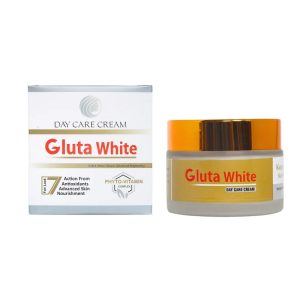
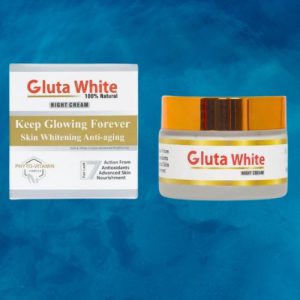
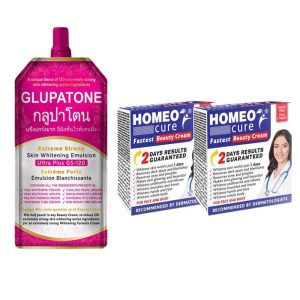
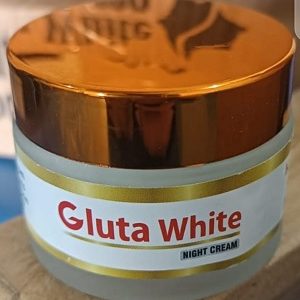

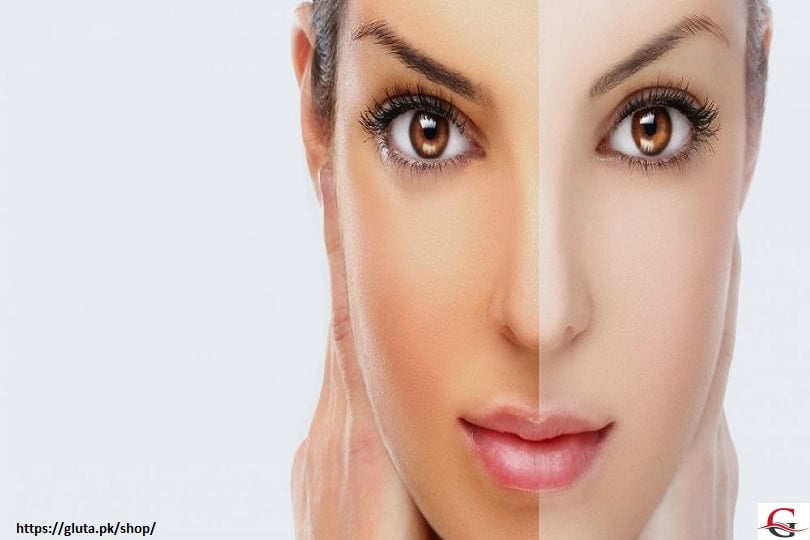
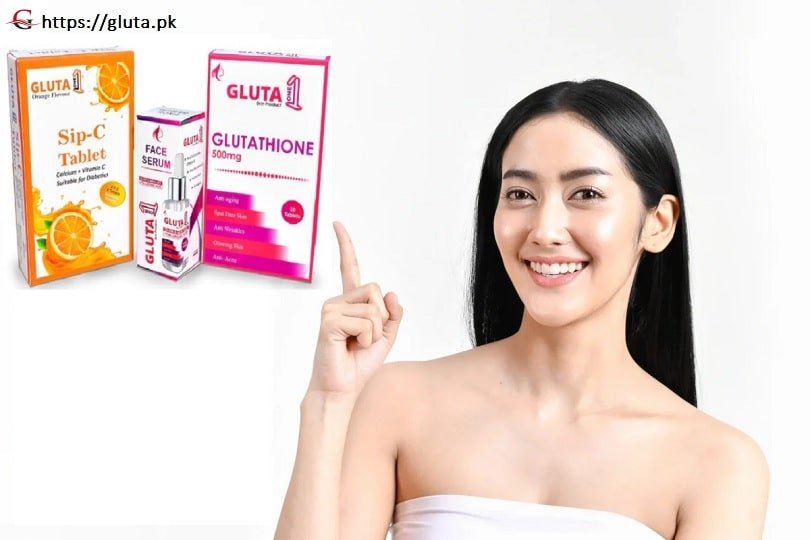
I’m always cautious about using whitening products, but this cream seems to have some great natural ingredients. Can anyone share their experiences with this cream?
i buy gluta white cream. waoo results. 100% results mily mujhy. Pakistan me best skin whitening cream hay yeh.